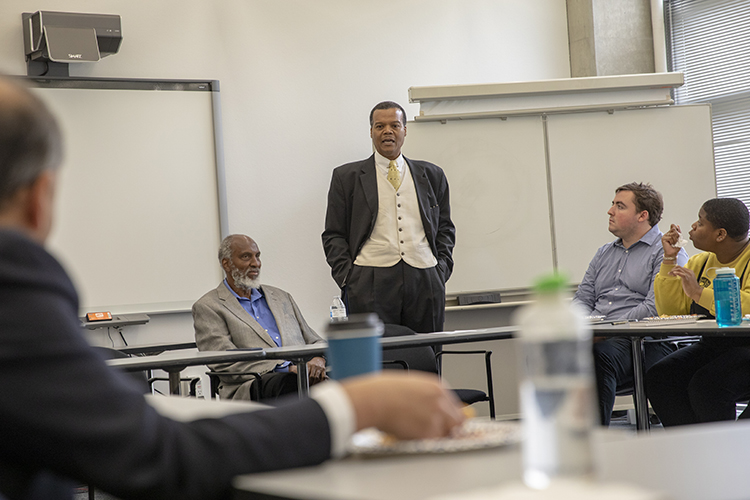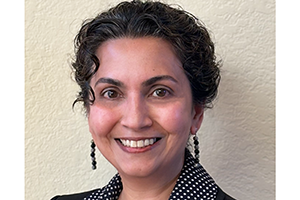Government, corporate and philanthropic leaders should undergo regular training to help get a better understanding of what black men and boys need to create safe, healthy communities, according to a new study.
It’s one of the recommendations from a report by the Fathers, Families and Healthy Communities organization, based in Chicago. Many of the findings are applicable to Milwaukee and other cities with large black populations, said Kirk Harris, the organization’s co-founder and an associate professor of urban planning at UWM.
Researchers drew from dozens of hours of interviews from more than 80 community meetings with black residents between late 2016 and fall 2018. Their voices are often overlooked, Harris said.
“Too often when we build solutions, whether through planning or government interventions, the last people we ask too often are the people experiencing the problems,” Harris said.
“We felt that it was really important to ask the community about their perceptions of the challenges and get answers from them.”
Strategies to create change
The study, titled “Chicago Black Men & Boys Community of Practice,” presents several strategies to foster change. It offers solutions focused on understanding and breaking down barriers in areas such as the criminal justice system, education and housing constructed by what the study calls structural racism.
This is important, the study says, because such barriers give rise to challenges that limit opportunities and threaten the lives and well-being of black men and boys. Challenges include violence and a lack of basic needs such as food, clothing and shelter.
To address challenges, the report drew recommendations that arose from the community engagements. Harris and his fellow researchers presented strategies and goals through what they called a “road map for social systems … that valued all people, especially black men and boys.” Ideally, the social systems would listen, respond and be held accountable while integrating into communities.
Training embedded in organizations
One solution calls for government, corporate and philanthropic organization leaders to undergo regular training to help get a better understanding of what black men and boys need to create safe, healthy and resilient families and communities. Training programs would be embedded within organizations.
“The study is really about community members offering their perspective on those things that constrain their day-to-day success, and how those constraints impact them and their families,” Harris said.
“It may be a lack of perspective and a limited appreciation of history that confound (an organization’s) ability to create the change or equity that is often claimed or desired,” he said.
The embedded training might be necessary to “deconstruct and reconstruct” organizational beliefs to get leaders to understand the need for change.
The report calls for the development of a “model of accountability and true democracy.” Accountability, Harris explained, has to be incorporated within organizations. Leaders must first recognize the problem, work to understand why it’s happening and then work on a solution.
“For example, statistics indicate that black men and boys are the most underemployed, have the lowest graduation rates and are the most highly incarcerated,” Harris said. “Having a level of accountability is asking why this is happening combined with a commitment to turning around the systems that are creating these outcomes.”
Short- and long-term goals
The study outlines short-term goals that could be achieved within a year, such as enhanced community leadership and increased interest in the well-being of black men and boys.
Ultimately, the goal is to create long-term changes in attitudes and systems. Outcomes that researchers hope to reach in the next decade include:
- Increased integrity and follow-through on commitments to historically marginalized communities.
- Increased accountability and transparency to the community, especially black men and boys.
- Strong, service-oriented black leadership.
- Support and dissemination of a fundamental analysis that examines systems’ racism and how it continues to replicate racial inequality and economic injustice.
Black men and boys are motivated to serve as leaders in their neighborhoods, the report says, and “want to make sure they hold themselves and all entities accountable to the communities.”
Harris’ nonprofit group partnered with Stanhope Consulting and BECOME, Chicago-based community-focused organizations, to conduct the study.







